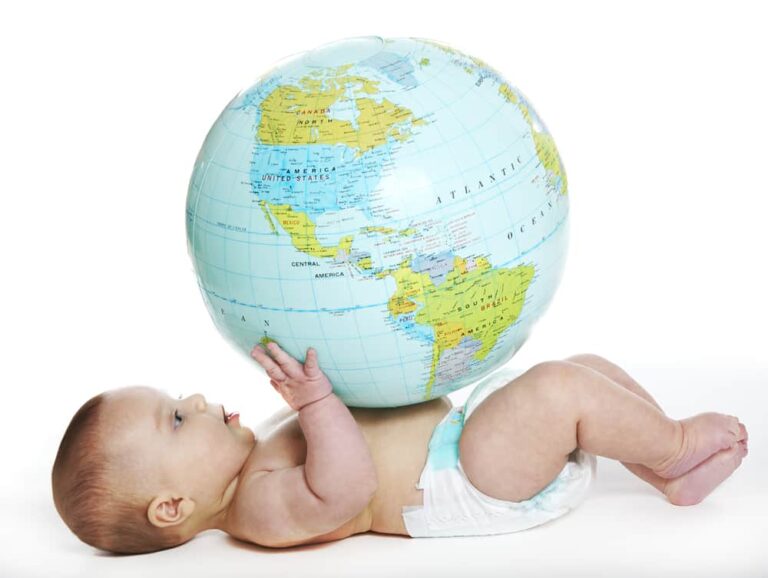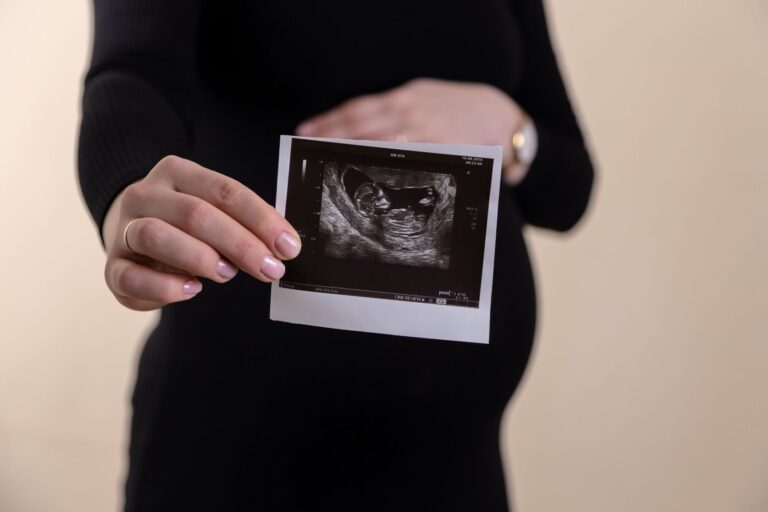Travelling for IVF abroad is becoming more popular than ever – you only need to take a look at the increasing numbers of online platforms, support organisations, forums, and clinics promoting information about so-called ‘fertility tourism’ to see that it is an option which is in demand. It is an option which recognises no borders – international patients are prepared to travel all over the world in pursuit of personalised fertility treatments. By far the most in-demand of these treatments are those involving egg donors and the reasons for this are numerous.
IVF with donor eggs abroad
Many patients seeking IVF (in vitro fertilization) with donor eggs abroad are attracted because of the specific legislative framework governing such treatments in a particular country. For instance, a patient from the U.K. may travel to Spain to access a treatment with an anonymous donor, something which is not legally permitted in the U.K. Similarly, a German patient may travel to Greece for IVF with donor eggs as the treatment itself is not prohibited in Germany.
To meet the demand of increasing numbers of patients there have been a proliferation of treatment providers set up to help the international patient. Depending on their location they can offer egg donor treatment for a wide variety of patients including heterosexual couples (married and unmarried), same sex couples, single women and patients who are unable to conceive with their own eggs.
If you are seeking to travel for egg donation abroad it will be no surprise if you are bewildered by choice! Today, there are numerous countries and IVF clinics abroad which offer the treatments – this article is intended to help you by sharing information about the various options available and signposting different countries of potential interest.
A caveat (as there always is with IVF treatment abroad) is that whatever treatment you access you will need to return home (hopefully after successful treatment) where you will spend the remainder of your pregnancy. The international clinic of your choice may advise you about the best way to arrange post treatment care and support but invariably this is left to you. You will need to be prepared therefore to share your treatment details with the medical team of your choice in your home country.
Egg donation abroad: treatment quality
The vast majority of international clinics that offer egg donation treatment abroad will offer quality-based treatments of a comparable nature to the care you would receive in your home country. In fact due to the competitive nature of international fertility, treatment providers can and do actually go the extra mile/kilometre to ensure that both the quality of care and support are of the highest quality.
If you are considering IVF treatment abroad you should consider a treatment provider in exactly the same way you would if they were based in your own country. You need to ask about how donors are recruited, how the clinic is regulated and request specific information about success rates (all of which we will cover a little later). As always, and if you feel comfortable, ask other patients who have travelled to the clinic or country you have in mind – you can usually find these on clinic websites or patient forums.
Egg donor availability abroad
Donor availability will depend upon the country in which you are intending to visit and the specific treatment provider. Many of the larger clinic groups may have multiple sites in different areas and consequently recruit from a diverse pool of donors. Other clinics may rely of the local population stepping forward whilst others may buy in the services of a dedicated egg bank.
The result of this recruitment means that you are likely to be able to source a specific phenotype when you travel. There will however be more donors of a particular phenotype in different regions of the world. For instance, a typical donor in Scandinavia might be blond and pale skinned whilst a typical donor in Spain may have darker hair and skin tones.
Remember the rules regarding anonymous and known donors which we will discuss shortly, will have an impact on what information you can request in terms of donor matching.
Anonymous egg donors – availability
Some countries abroad offer patients access to anonymous donors. This means that the identity of the donor will remain anonymous to both the recipient and any baby that might be born as a result of the treatment. The majority of countries which welcome international fertility patients offer anonymous donors and the most popular destinations include Spain, Greece, Cyprus, and the Czech Republic. In countries where anonymous donor treatment is offered recipients may be given a limited amount of information about the donor. The amount will depend on the country but could include details of their hair and eye colour, as well as information relating to blood type and so on.
Non-anonymous egg donors – availability
Many of the popular destinations for IVF with donor eggs only permit fertility treatment that is possible with non-anonymous donors. This means that the recipient and any donor conceived individual has the right to receive information about the donor. This might involve the recipients choosing a donor based on specific requirements or accepting a particular donor suggested by the treatment provider or the donor conceived individual seeking to information on the donor when they reach the age of 18. The most popular destinations for couples seeking to involve non-anonymous or ‘known’ donor include the U.K., U.S. and Portugal.
Egg donation for single women
Egg donation treatments are available for single women in a number of countries worldwide and this is one of the major reasons why single women travel for treatment. Access to treatment without a waiting list, good availability of donors and low costs mean that this is a good option for many women.
Egg donation for single women is readily available in a number of European countries including Spain, Denmark, Latvia, Portugal, Greece, Cyprus, and the U.K. (at clinics in the private sector). Further afield, it is also available in the United States, India, Mexico and Canada. IVF treatment for single women is not available in a number of countries including, the Czech Republic, Poland and the U.K. via the NHS.
Egg donation for women over 50
IVF treatments for women over 50 are becoming increasingly accessible and this is particularly so for women seeking egg donation treatments.
Egg donation for women over 50 is very much dependent upon a woman’s general health rather than their ability to pay and is available in a number of countries including North Cyprus, India, and Latvia. It might also be possible in other countries such as Spain, Poland, United States, or at private clinics in the U.K. based on individual circumstances. It is not available in the Czech Republic.
Double donation abroad
IVF with double donation treatment is the use of sperm and egg(s) which have been provided by donors and fertilised. The treatment is suitable for patients unable to use their own gametes for any reason. Although the treatment is more expensive than using a single donor i.e., a sperm or egg donor, success rates are generally very high.
IVF with double donation is allowed in many countries including Spain, Cyprus, Greece, Portugal, India, Czech Republic, Poland, the United States and the U.K. As with all donor treatments countries will offer the treatment with some eligibility criteria or legislation guidelines. For instance, in the U.K. any treatment would involve non-anonymous donors and in countries like the Czech Republic the treatment would not be available for single women or same sex couples.
Fresh or frozen oocytes from the donor?
Clinics and indeed countries tend to prefer the use of fresh or frozen eggs. There are pros and cons with each but the ultimate question patients want to be answered is which provides the highest success rates. Unfortunately, there is not a simple answer to this question and that is why some clinics will suggest you use frozen eggs, whilst others will recommend fresh.
Whilst fresh eggs are preferred by clinics there are many logistical implications for their use. Firstly, the use of fresh eggs can be demanding in terms of managing the IVF process as the cycles of the donor and recipient have to be synchronised. The specific timing of the procedure means that it might impact those who have to travel for treatment as accommodation and travel plans may be needed to be made at short notice, cancelled or amended. Such changes will undoubtedly come at a cost.
Some clinics will suggest the use of frozen eggs as the management of such is logistically easier. The use of frozen eggs that have been thawed means that clinics can offer transfers that are scheduled on specific days which makes it easier for patients to plan visits and once again if the patient has to travel for treatment it means that the time they spend away from home is less.
As differences in success rates between the use of fresh or frozen eggs do not appear to be large the choice will ultimately depend on the clinic you visit, the cost and your individual preference.
Egg donation abroad – opportunities & restrictions
Egg donation in Spain
Egg donors are anonymous in Spain therefore the recipient receives only basic details about the donor. The treatments are available to women up to the age of 50 and both heterosexual and same sex (female) couples as well as single women have access. A maximum of six babies maybe born from one donor.
Egg donation in Portugal
Egg donors ae non-anonymous in Portugal which means that any child born as a result of treatment can obtain identifiable information about the donor when they reach the age of 18. Treatments are available to single women, and couples (heterosexual and female).
Find IVF Clinics in Portugal >
Egg donation in the Czech Republic
IVF clinics in the Czech Republic offer egg donation to international couples but no access is offered to single women or those in same-sex relationships. There is a maximum age of 48 and individuals may donate up to six times.
Check IVF Clinics in Czech Republic >
Egg donation in North Cyprus
Egg donation in North Cyprus offers anonymous donors to women up to the age of 55 dependent on individual circumstances. The maximum number of embryos that can be transferred is three and treatments are available to single women or couples.
Find IVF Clinics in North Cyprus >
Egg donation in Greece
Egg donation treatments are offered to women up until the age of 54 and donors are anonymous. Women in heterosexual relationships and single women can have treatment but the latter have to obtain a legal document confirming their relationship status prior to treatment.
Egg donation in Latvia
Egg donation laws in Latvia are liberal meaning that single women and those in relationships (regardless of gender) can access treatments which are offered with the help of anonymous donors. There is no legal maximum age for patients and this is generally decided by the treatment provider.
Egg donation in Poland
Most clinics in Poland will treat women up until of 52 for treatments involving egg donation. No egg donation treatments are available for single women or those in a same-sex relationship. Anonymous donors can donate up to a maximum of ten times.
Egg donation in Ukraine
Egg donors are anonymous in Ukraine and although there are no legal restrictions on the age of female patients clinics will usually treat women up until the age of 51. Donors are anonymous – single women can access egg donation treatments but they are not available for women in same-sex relationships.
Egg donation in Denmark
Egg donation treatments are available to women regardless of relationship status and donors can choose to have their identity shared or hidden from the recipient and prospective patients. Women can access egg donation treatments up until the age of 46.
Egg donation in the UK
Egg donation treatments in the UK are offered with the help of non–anonymous donors therefore their details could be shared at the request of any child born as a result of their donation when they reach the age of 18. Although there is no leg limit in terms of a patient’s maximum age most private sector clinics will only treat women until the age of 50.
Egg donation in Mexico
Egg donors are treated as anonymous and treatments may be offered to women over the age of 50. Single women and those in same-sex relationships can access egg donation in Mexico.
Egg donation in the USA
Egg donors in the United States may choose to be anonymous or not and patients in receipt of such procedures can be aged up until 50. Single women and those in same-sex relationships can have egg donation treatment.
Egg donation in India
There is no legal restriction on the age of IVF patients in India although it is recommended by medical regulators that clinics should employ a 50-year ceiling. Donors are anonymous and treatments are available to single women.
Egg donation costs abroad
Egg donation treatments are widely accessible around the world. Costs can vary between countries – at one end of the spectrum, you have India where costs can begin as low as €1,200 rising to over $50,000 in the United States.
The cost will include variables which include whether you decide to opt for fresh or frozen eggs and may include additional costs such as those for medication. Costs for medication can be substantial so you should ask about these as early as possible and factor in these costs prior to making a decision about treatment providers. Clinics will invariably offer packages based on a number of treatment cycles or embryos and others will offer ‘guarantee’ or refund products. Such packages and products will be more expensive and may be subject to eligibility criteria so as ever, read the small print!
The majority of the basic costs we have come across and are quoted in this article cover medical consultations, egg donor costs (including compensation), blastocyst culture and an embryo transfer on day 5 but do ask and confirm when you are calculating treatment costs.
The following table provides an indication of average costs across a number of the most popular countries favoured by international IVF patients.
Egg donation abroad – cost comparison
| IVF country | Donor egg IVF cost* |
|---|---|
| Spain | €6,000 – €15,000 |
| Portugal | €6,000 – €8,000 |
| Czech Republic | €4,000 – €8,000 |
| North Cyprus | €4,000 – €5,500 |
| Greece | €4,000 – €6,000 |
| Denmark | €5,000 – €6,500 |
| Latvia | €5,000 – €8,000 |
| Poland | €4,000 – €6,000 |
| Ukraine | €4,000 – €6,000 |
| Russia | €4,000 – €5,000 |
| United Kingdom | £6,000 – £16,000 |
| Mexico | $10,000 – $12,000 |
| USA | $25,000 – $50,000 |
| India | €2,000 – €3,000 |
Popular egg donation clinics abroad:
Popular IVF clinics in Spain
- Clinica Tambre – Madrid
- UR Vistahermosa – Alicante
- Reproclinic – Barcelona
- Instituto Bernabeu – Alicante
Popular IVF clinics in the Czech Republic
- Gynem Fertility Clinic Prague – Prague
- IVF CUBE – Prague
Popular IVF clinics in Greece
- emBIO Medical Center – Athens
- NewLife IVF Greece – Thessaloniki
Egg donation success rates abroad
Egg donation success rates achieved by clinics offering treatments for international patients can vary so you will need to spend some time looking at the rates advertised – a caveat here, do look at the rates attached the specific treatment you are interested in and ask for the success rate breakdown by age so you can work out an approximate success rate for your specific circumstance.
Egg donor banks abroad
You may be fortunate to choose a clinic that will offer you a diverse choice of donors via their internal egg bank. When this is not the case you may have to access the services of a specialist egg bank. If you do use the services of an external bank ensure you build in any additional costs the bank may charge such as shipping costs or additional matching tools.
Remember if you are having egg donation treatment in a country which only offers anonymous donors you can only choose an anonymous donor from an egg bank. You have the option of asking your treatment provider if they have a relationship with a specific egg bank or whether you have the freedom to identify and negotiate an arrangement with a bank of your choosing.
There are many egg banks to choose from – this link will provide you with an opportunity to start your search for an appropriate provider – egg donor banks worldwide.
IVF with donor eggs abroad: summary
Whatever your relationship status or age you will have options if you are seeking an egg donation treatment. Prices will vary considerably as will the diversity of donors at your disposal. Each country will operate very different rules about how much information you might have regarding a donor and there might a waiting list.
Take your time to obtain specific success rates that relate to the treatment you are seeking and your age and ensure you are made fully aware of what any quote covers.
We hope this article helps you start your journey to finding the most appropriate country, clinic and provider.




